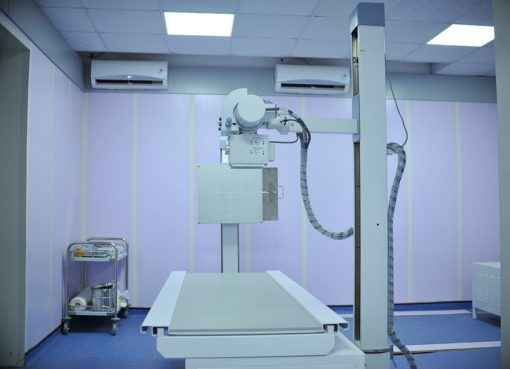Healthcare claim denials can be a constant source of difficulties for a hospital of any size. Not only can they affect the organization’s revenue and cash flow—which in turn affects staff morale and operational efficiency—but denials can also delay the delivery of medical treatments and services to patients, which is especially worrisome when people are in dire need of care.

The unfortunate outcome is that many hospitals often find their bottom lines and reputation compromised. The fact that denials appear to happen as much as 20% of the time in most healthcare organizations makes things even worse.
Fortunately, there are ways to reduce the chances of denials or even avoid them entirely, with one of them involving the implementation of healthcare denial management solutions. But before we get into those, let’s first look at some of the most common causes of healthcare claim denials.
-
Missing or erroneous information. In the healthcare industry, incomplete or erroneous information can spell the difference between life and death. The same goes in the realm of healthcare claims. One unfilled blank or one typographical error involving the patient’s name, address, or social security number could mean the difference between hospitals getting paid or having to write off a stiff bill.
-
Incorrect or incomplete billing coding. Incorrect or incomplete billing coding is also a big source of healthcare claim denials. Hospital staff members need to ensure that the correct and complete codes are set for every diagnosis the first time, every time. What makes this particular denial cause difficult to mitigate is the human error factor. No matter how meticulous people are, they will always end up making mistakes, especially in high-volume, high-urgency situations. This is also compounded by the occasional updating of codes and unannounced payer changes. Training and hiring additional staff may help alleviate this problem, but not by much.
-
Time limit for filing has expired. Most healthcare payers require healthcare claims to be submitted within a certain number of working days to be approved. This seems reasonable enough until hospital staff discovers that this time limit also includes the time it takes to rework and resubmit denied or rejected claims. Figuring out just what errors or mishandling caused the denial and then correcting it can cause the time limit to run out, which of course results in a write-off that could cause the hospital thousands in lost revenue.
-
Ineligibility of the patient. Denials may also be caused by the patient not actually being eligible for the treatment or services provided. Conversely, the patient may have been eligible at first, but changes implemented by the payer may have altered their insurance coverage. No matter the reason, this results in losses incurred by the healthcare provider.
-
Insufficient documentation. Payers often demand complete documentation when it comes to healthcare claims not just to justify the procedure or treatment administered but also to prove that it was administered in the first place. If just one form or document is missing, the claim may be refused by the payer.
As stated above, there are ways in which to minimize these causes of healthcare claim denials or avoid them outright. Obviously, most of them involve identifying and then directly addressing the reason for the denial itself. If, for example, the reason is not being able to file claims in time, then the hospital staff must be reminded to do so. Perhaps they can also undergo training in order to become more efficient in their tasks.
However, due to the urgent and ongoing nature of hospital work, there may not be enough resources— in the form of manpower or time—to devote to identifying and pinpointing these causes. And as we’ve stated, human error is a major factor in most of the causes, which could mean that they can and will happen repeatedly unless they are efficiently discovered and mitigated. This is where a healthcare denial management solution comes in, and it comes in the form of big data mining and analysis.
What are big data mining and analysis? How can it help prevent healthcare claim denials?
Big data mining and analysis, in a nutshell, involves having sophisticated and automated computer programs to handle a hospital’s entire electronic medical records and financial database. These programs, which are designed with artificial intelligence and machine learning technologies, can work on their own to identify patterns, links, and commonalities in that huge amount of data much more efficiently than a dedicated team of people can.
These programs are also powerful enough to learn and adjust their criteria for finding these patterns on their own, allowing them to continue evolving as the databases are constantly modified and updated.
Through the use and implementation of such a program—one that should be specifically engineered to address the needs of the healthcare industry—the time and effort that it takes to investigate healthcare denial claims are cut down. This allows hospital administrators to quickly identify the root causes of the healthcare denials happening within their jurisdictions. Armed with this information, they can then implement specific process changes or improvements so that those causes are directly addressed and therefore proactively minimized—or even eliminated outright.
Big data mining and analysis may seem like a radical solution to a problem that used to be addressed with extensive staff reviews and long bouts of the investigation. But by taking advantage of data analysis, hospitals can quickly move beyond simply reacting to claim denials and get into a more proactive and preventative mindset.




